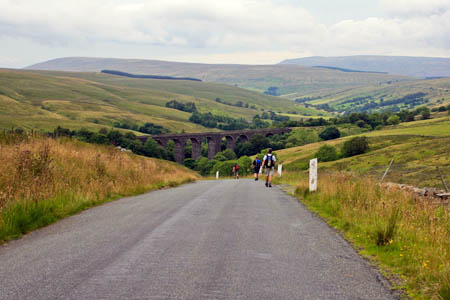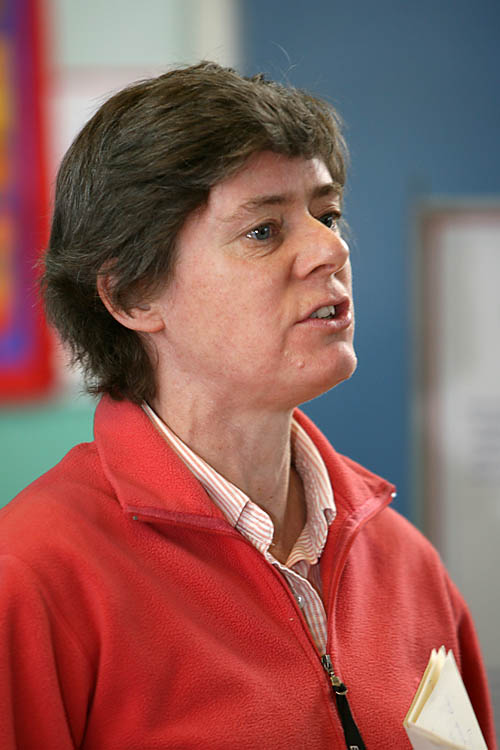
The country's road verges are part of the rights-of-way network
Britain is on the verge of losing some of its most important walkers’ resources, according to a campaign group.
The Open Spaces Society says the margins at the edge of the country’s roads are an important part of the rights-of-way network, and must be maintained properly. The society is making the case in response to a Government road-safety consultation.
OSS general secretary Kate Ashbrook said: “The verge is a part of the highway and should be available for use by walkers and riders.
“If all verges were open and usable, it would greatly increase the land available for public use, whether for utilitarian purposes or recreation.
“But too often the verges are overgrown and neglected, or even filched by adjoining property owners.”
She was responding to the Department for Transport’s paper A Safer Way: Making Britain’s Roads the Safest in the World, which is asking for ways of reducing pedestrian casualties.
Ms Ashbrook continued: “Highway authorities – the county and unitary councils – have a legal duty to keep highway verges in good order.
“If the authorities carried out this duty the verges would be available to users who would then not be forced to use the road itself, with traffic roaring past at speed.”
The society has called on the DfT to recommend to highway authorities that they clear and maintain all the verges on their rural roads. The problem is not a new one, and was identified more than 70 years ago by the OSS’s legal adviser WR Hornby Steer in 1936.
He wrote: “It is important that strips of roadside waste should be safeguarded from any illegal attempts to inclose them.
“Firstly, in cases where no footpath has been constructed alongside the roadway, such strips enable pedestrians to proceed with greater comfort and safety than they would be able to obtain on the Roadway. Secondly, such strips sometimes provide a soft turf surface of value to equestrians who would otherwise be limited to using a road often of a character unsuitable for horses.
“The increase in the habit of taking walking and riding exercise and the increasing need for wide traffic routes render it especially desirable at the present time that the public should not lose the advantages to be obtained from keeping such strips free from any illegal inclosure.”
Ms Ashbrook said: “Every word of Mr Hornby Steer’s article rings true today. Indeed, 73 years later, traffic has increased massively, making roadside verges much more important.
“Roadside wastes or highway verges are a tremendous, but neglected, resource for the public.”

Unfenced commons should have a 40mph limit, says the OSS
The OSS is also urging the Government to recommend unfenced commons should have a 40mph speed limit where roads cross them.
Ms Ashbrook said the DfT should press for the limit to preserve the nature of England’s ancient common land.
She said: “People need to know that, when they drive across a common, this is somewhere special – a place that goes back to medieval times, which should be treated with respect.
“Commons have remained unchanged for centuries, and are truly unspoilt, natural habitats. But if the habitat is to be maintained, it probably needs grazing, which is not possible unless the traffic is slowed, or the road is fenced.
“Fencing is an eyesore, and restricts people’s access onto the common on foot and horseback. It’s much better to slow the traffic and protect the natural landscape. So a 40mph speed limit, properly enforced, could be the solution.
“We hope the Department for Transport will advocate such a speed limit on all unfenced commons.”
The Open Spaces Society will hold its first-ever open day, for its members and the public, next month.
Writer Richard Mabey, a vice-president of the society, will lead a walk to explain the Battle of Berkhamsted Common, following the 1866 route of the navvies who, at dead of night, travelled from London to dismantle Earl Brownlow’s illegal fences on the common.

The gathering will celebrate Kate Ashbrook's 25 years as OSS general secretary
The event will take place at the Memorial Hall at Aldbury, near Tring in Hertfordshire, on Saturday 15 August.
Historian and journalist Chris Hall, founder of the Chiltern Society, will also lead a walk up to Aldbury Nowers, where in 1891 two gamekeepers were killed in a murderous fight with poachers.
The walks will be followed by cream tea and a discussion on commons, greens, open spaces and paths, chaired by Mr Mabey.
The event will mark Kate Ashbrook’s 25 years as general secretary.
Ms Ashbrook said: “We are hoping for a good turn-out on what promises to be an enjoyable occasion. The society, which is Britain’s oldest national conservation body, has a proud and colourful history, which we shall celebrate on 15 August.
Anyone wanting to attend should contact the OSS’s Ruth Walker before 27 July. Places can be reserved by ringing 01491 573535 or emailing Ruth.